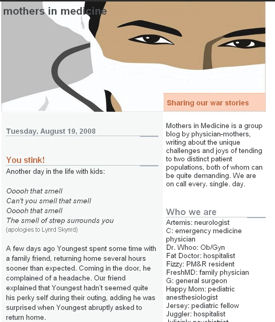Hospitals work with admitting doctors on documentation
Hospitals are working more closely with their admitting physicians to make them aware of the need for better documentation on pre-existing conditions.
With many office-based internists working at least part-time in hospitals—seven of eight ACP members do at least some form of direct patient care in the hospital—it's worth reviewing the new Medicare hospital payment policy that requires clear indication as to whether conditions are present upon admission, as opposed to complications that happen once admitted. Medicare will not pay for certain conditions that represent complications/exacerbations, so hospitals are working with their office-based doctors to make them aware of how the issue affects reimbursement.
Q: Is it true that Medicare will not pay hospitals for complications that the patient acquires during a hospital stay?
A: Effective Oct. 1, Medicare will not reimburse a hospital when the patient acquires one of the following conditions during a stay:
- serious preventable events such as objects left in during surgery, air embolisms and blood incompatibility,
- catheter-associated urinary tract infection,
- pressure ulcers,
- vascular catheter-associated infection,
- surgical site infection—mediastinitis after coronary artery bypass graft surgery,
- falls and traumas—fractures, dislocations, intracranial injuries, crushing injuries, and burns,
- surgical site infections following certain elective procedures such as orthopedic surgeries and weight reduction surgery,
- extreme blood sugar derangement, and
- deep vein thrombosis/pulmonary embolism.
- Medicare will pay the hospital in these cases as if the diagnosis representing each of the above did not exist. Congress mandated that CMS implement this policy to avoid paying for preventable ill-effects to the patient and to encourage quality. ACP supports reducing the incidence of avoidable hospital-acquired conditions but has expressed concern to CMS that not all of the conditions to which the policy applies are entirely preventable.
Q: How does Medicare know when to apply this policy so as to avoid paying the hospital for these conditions?

A: CMS requires hospitals to clearly indicate the conditions with which the patient is afflicted at the time of admission, referred to as present on admission (POA). Conditions developed/present during an outpatient encounter, including in the emergency department or observation area, that leads to an admission are considered POA.
The hospital will determine the diagnosis code(s) that pertain to each patient based on the clinical documentation provided by the physician and others related to the admission. The hospital then assigns a POA indicator to each diagnosis code it assigns to support payment, selecting from a list that stipulates each of the following:
- a diagnosis was present at the time of admission;
- a diagnosis was not present;
- the documentation is insufficient to determine if it was present; and
- the physician was unable to determine if the condition was present.
- Each POA indicator has a payment implication.
Q: How does this affect me as a physician who cares for patients in the hospital setting?
A: The hospital has a strong incentive to make sure office-based physicians with admitting privileges know this policy and understand what is expected. Hospital staff and coding personnel may increase their interaction with the admitting/treating physician to ensure the facility has the documentation and other information needed to comply with this payment policy and avoid reduced payments.
Medicare has required hospitals to include a POA indicator for each diagnosis related to a hospital stay since October 2007 so physicians may already have a sense of how hospitals are approaching compliance. Now that the POA indicator reporting can adversely affect payments, it is possible that hospitals will further engage its office-based admitting physicians.
Q: Will Medicare apply this same concept to impose some limitations on payments to in-office physicians?
A: Medicare cannot expand this concept to the methodology it uses to pay physicians or any other provider without authorization from Congress. ACP will continue to engage CMS and the Congress to ensure that the Medicare physician payment methodology is fair.
ICD-10 changes slated
Q: Is Medicare considering a dramatic change that would increase the number of ICD-9 codes?
A: CMS published a proposal in August 2008 that would require the use of a new version of diagnosis codes, called ICD-10, that would greatly expand the number of available diagnosis codes from the approximately 17,000 in ICD-9 to more than 155,000 in ICD-10. CMS proposes that this new, more granular and detailed diagnosis code set take effect October 2011. In ICD-10, codes contain up to seven alphanumeric digits—as opposed to up to five primarily numeric digits in ICD-9, and diabetes mellitus codes are expanded to include the classification of diabetes and the manifestation.
ACP has opposed the switch to ICD-10 because of concern over the cost and administrative burden that would accompany such a dramatic change. CMS believes that the more voluminous set of diagnosis codes will allow more precise reporting that will aid pay-for-performance efforts and biosurveillance. The agency will make a final decision after considering public comments and will provide a significant transition period if it decides to move forward with its proposal.
Q: Does ACP offer any resources that help with diagnosis coding?
A: The October 2008 ACP Internist described the changes to the ICD-9 diagnosis codes currently being used that took effect Oct. 1. The College makes a list of the ICD-9 codes most commonly used by internists available free for ACP members. This link provides instructions for ordering a laminated copy of the single page, two-sided list. It also allows members to access the list as a PDF document; in Word format, which enables the list to be modified to reflect a practice's patient population; and for a PDA.
The College plans to provide members assistance in transitioning to ICD-10 if the government goes through with its recently proposed plan to implement this significantly more expansive diagnosis code set.




